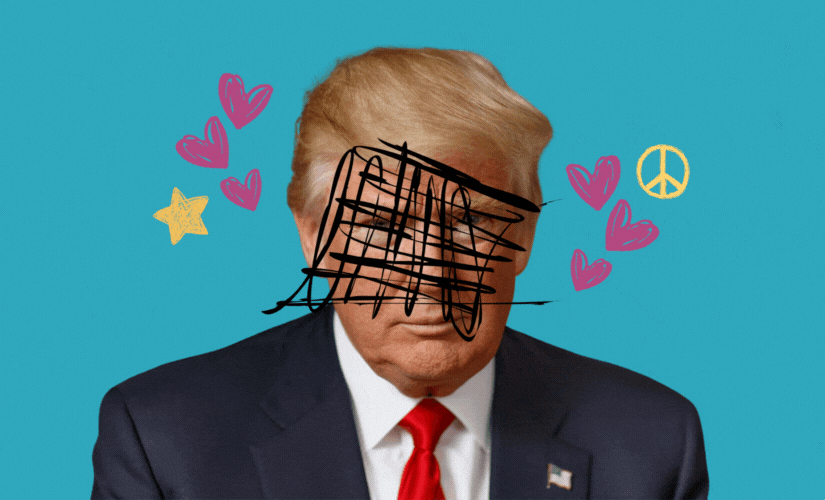Want to do more to defeat Trump? Here's how.
A liberatory practice of love gets us there. but how?
Q:
Hi Melissa! With every awful thing going on in the world – from the genocide in Palestine to preparing for another Trump presidency – I desperately want to “do more” in an activism and advocacy sense, but I feel so overwhelmed with current events that I feel frozen. I know that my anxiety and depression leads to a lack of meaningful action, but I don’t know where to start. Help?
A:
If I had a dollar for every time someone asks me this question, I… would still have to work because lolol capitalism, but I would have a lucrative passive income stream. And that’s not to suggest that this isn’t a good question; rather, it’s to say that it seems to be the question of the moment. A lot of people are struggling with this, and you are not alone.
I’ve heard jokes that Millennials are the “anxiety and depression generation,” and is it any wonder? We have the most access to information we’ve ever had, and fear-mongering drives ad revenue. Yes, people feel overwhelmed and anxious to the point of a freeze response – and then feel guilt and shame for not doing more to change the conditions people (usually folks more marginalized than we are) are living under.
Luckily, I’ve noticed this trend and have devised an offering around it: one-on-one coaching for political process and action. It’s a container where we can unpack the complicated emotions you’re having (fear! anxiety! overwhelm! oh my!) and strategize around how to make the most of your skills to help your community in a values-aligned way.
In the meantime, let’s talk about some places to start with sorting out how to use activism and advocacy to make a difference in these exhausting, terrifying times.
1. Community care starts with a community to care for.
If you’ve ever lamented how hard it is to make friends as an adult, I need you to buckle up for a moment of tough love: Is it hard, or is it effortful?
Often, when I talk to folks about this phenomenon, I find that people are much more willing to put effort and intention into their romantic connections than they are their friendships. This is the wrong approach. Building community is a ripple effect, and it starts with the people closest to you.
The Bay Area Transformative Justice Collective has an amazing resource for actively naming who you’re in community with and where to build from there: pod mapping. I also recommend reading the book Platonic by Marissa G. Franco, PhD to help you sort out the self-work necessary for maintaining friendships.
2. Think through your personal path and purpose.
Do you remember in high school, when we had to take those aptitude tests that matched us with career options based on our personalities and skill sets?
This is a similar practice, though it’s less quiz and more self-reflection: The Social Change Ecosystem Map is a great start for understanding what your role in the movement is or could be. Arguably, the number one reason why my world-crisis-induced stress is manageable is because I am very comfortable in knowing my role and staying in that lane.
If you’re into tarot, I also suggest a simple reading to help you reflect: After centering yourself and shuffling your deck, look for the Ace of Wands. Pull it out along with the cards on either side of it. What is being illuminated here?
3. Be honest about your areas of interest.
The truth is, many of us have “pet causes,” so to speak, that are important to us. It might be because they’re experiences we’ve personally had (abortion access is a great example); it might be because they’ve simply hit us in the gut (like the recent uptick in Palestinian liberation efforts).
There is nothing wrong with this, and it is not an indication that you don’t care enough about other issues. Sure, if you’re Taylor Swift-ing your way through activism (only speaking up for issues that impact you directly), you may be falling into white feminism. But if you’re aware of how all issues are interconnected (see below), then you understand that you are taking one small role in a larger collective of people working toward liberation.
Ask yourself: What are the issues, causes, identities, and communities I’m most drawn to, that truly ignite my passion? Start there.
4. Keep intersectionality in mind.
The term intersectionality was coined by Dr. Kimberlé Crenshaw in 1989 to describe the unique conditions that Black women work under. They do not experience life the same way that white women do, nor do they experience the world the same way that Black men do. The overlapping experience of being Black and women is nuanced.
Intersectionality is a framework for understanding overlapping experiences of power and oppression, and it can be helpful in considering how all sociopolitical issues are interconnected.
If you haven’t yet read the Combahee River Collective Statement, start there. If you want to go deeper into learning about different identities, Everyday Feminism is a great resource.
Remember, of course, that this is just a start – but I hope it’s one that feels grounded and practical. Because I don’t want you to feel like you’re flailing with nothing solid to grab onto. And now isn’t the time to be stuck in not-knowing.
In solidarity, always,
Melissa

